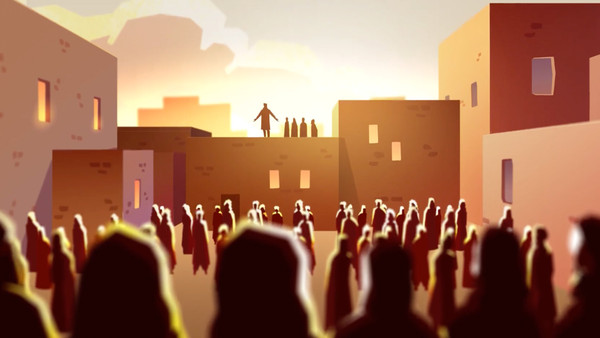

Pentecost: Acts 1-7
In this video, we'll explore how God's Spirit filled and empowered Jesus' followers, renewing them and preparing them to announce the good news to the nations.
Reflect
What is one way this video encourages or expands your understanding of the book of Acts?
In the Hebrew Bible, God is repeatedly depicted as a fire. Why is this significant in the book of Acts?
In your own words, summarize the way Luke speaks of the two different temples.
Jump In
Downloads
Next Episode
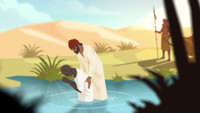
Episode 7
The Apostle Paul: Acts 8-12
Luke-Acts
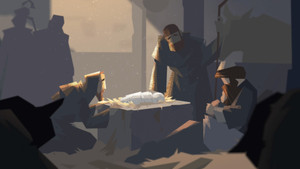
Episode 1
The Birth of Jesus: Luke 1-2
In the first video in our Luke-Acts series, we explore the amazing events surrounding the birth of Jesus. The humble conditions of his family and their low status in Israelite society foreshadow the upside-down nature of Jesus’ Kingdom.
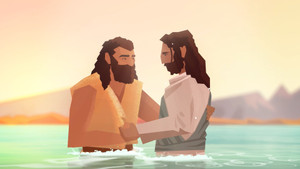
Episode 2
The Baptism of Jesus: Luke 3-9
In this video, we watch Jesus launch his ministry of good news for the poor and see how he brought together people from diverse backgrounds to live together in peace.
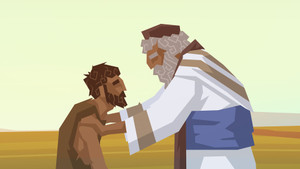
Episode 3
The Prodigal Son: Luke 9-19
Jesus continues his announcement of good news for the poor during his long journey to Jerusalem. In this section of Luke, we see Jesus' conflict with Israel’s religious leaders increase, which provides the setting for the famous parable of the Prodigal Son.
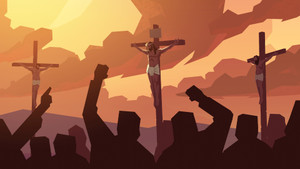
Episode 4
The Crucifixion of Jesus: Luke 19-23
Explore the final week of Jesus' life, which culminated in controversy in Jerusalem. In this section of Luke's Gospel, we see how Jesus comes to terms with his fate, knowing that his death would open up a new future for Israel and for all humanity.
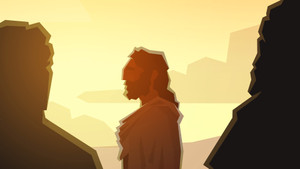
Episode 5
The Resurrection of Jesus: Luke 24
This video concludes Luke's epic portrait of Jesus of Nazareth, setting the stage for his second volume, Acts. The tomb is empty and Jesus is alive, seated as the ruler of God’s Kingdom.

Episode 6
Pentecost: Acts 1-7
In this video, we'll explore how God's Spirit filled and empowered Jesus' followers, renewing them and preparing them to announce the good news to the nations.

Episode 7
The Apostle Paul: Acts 8-12
In this video, we meet the apostle Paul. See how God transformed Paul and grew a small collective of messianic Jews in Jerusalem into a multi-ethnic movement that quickly spread throughout the nations.
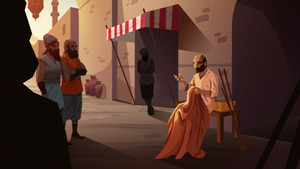
Episode 8
Paul's Missionary Journeys: Acts 13-20
What was it like for Paul to travel around the Roman Empire announcing the good news about the risen Jesus? How did people respond to his message? In our third video on the book of Acts, we’ll explore all of this and more.
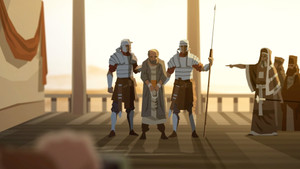
Episode 9
Bound for Rome: Acts 21-28
In the final video in our Acts series, we trace Paul’s final journey to Jerusalem and then into a Roman prison. But Paul’s suffering leads him into the heart of the Roman empire, where he gets to announce God’s Kingdom to the nations.